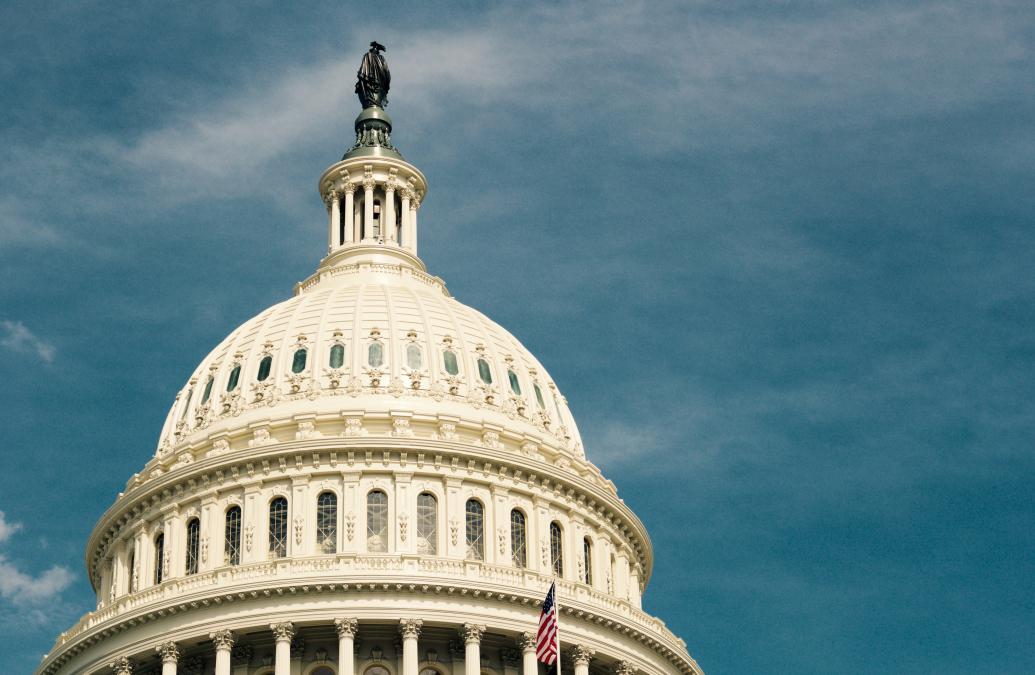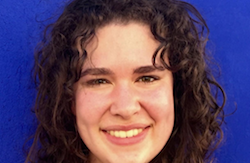Understanding the Branches of Government

Photo by Jomar Thomas on Unsplash.
Kai Salem '18 reflects on her time in the Brown in Washington program and shares her top tips for civic engagement.

Q: Briefly describe the work you did in D.C. through the program.
A: I interned for Sen. Whitehouse’s office in D.C. Interns for Sen. Whitehouse fill a variety of administrative and research roles in the office. Projects include: sorting constituent emails, leading constituent tours, writing transcripts of Sen. Whitehouse’s speeches and comments, taking notes at briefings and hearings and conducting basic policy research. I also sometimes ran errands, delivering bills to the Democratic Senate Cloakroom or letters to other offices.
Q: What unexpected experiences did you have?
A: I didn’t expect there to be so many interesting, free briefings on Capitol Hill in my field (electric grids, renewable energy, climate aid)! I’ve made some great connections at these briefings. I also didn’t expect to have face-to-face time with Senators. And I didn’t expect that my roommates would become such a big part of my experience here.
Q: What was your most memorable experience?
A: I think our Pakistan/Afghanistan project for our Diplomacy class was a really interesting experiment and brought our group closer together. We spent 12+ hours together, working in our simulated negotiation as well as having our own negotiations to shape the process. I learned a lot about group dynamics, and these lessons have been applicable to our group and even to understanding international politics.
Q: Why should people apply to this program and who should apply for this program?
A: Apply to this program to:
-
Explore an interest in politics or policy-making or issue-based advocacy or organizing … really, anyone who’s interested in making change can learn from how changes are made in D.C.
-
Gain job experience and build your networking skills.
-
Learn about what you want to do in your career.
-
Experience a different type of learning from what we might see in a Brown classroom.
-
Immerse yourself in news, current events and questions about partisanship, what “America” is, what its role in the world should be, etc.
-
Have an “engaged” semester, in that your academic learning is interwoven with public service.
I think anyone who wishes to apply their work towards making change or social justice or public service could get something out of this program. Politics influences every industry; this experience is an invaluable education in those connections. That said, I think this program is best for someone who likes a “work” environment, who is a self-starter and likes reaching out to new people and who is maybe ready for a break from campus. I don’t think the program is better for anyone from a particular background, concentration or interest set: our cohort has such a variety and we’re all enjoying the experience! I do think it’s better for people who are new to D.C., are considering working in D.C. down the line and have a particular interest in (and maybe some background in) American politics.
Q: What advice would you give for anyone interested applying and to the new cohort of students participating in the program?
A: Familiarize yourself with how the federal government works before you get here! Lots of things—the organization of the executive branch, the procedural rules of the Senate, the relationships between the branches—are not intuitive, and it’s useful to understand these details because they’ll come up often in your work and studies.
Similarly, if you’re working in the Senate, start learning all of the Senators’ names, faces, parties and states—this is useful when you’re in a Senate hearing and can’t see the names or if you’re just walking around and walk past a Senator. If you’re in the house, learn as many of the Congress people as possible … although there are a lot more.
Come up with a D.C. bucket list as you’re preparing to go—and follow through on things over the course of the semester! This bucket list should include Brown alumni and other connections with whom you’d like to network. You can even look up organizations you like or think tanks that focus on an issue you’re interested in and reach out to someone on their staff list.
I was very concerned about what to wear in the Senate/House as an intern … here’s what I have concluded after observing what most people wear here (for women):
-
For working ~4 days per week, you don’t need a lot of clothes. I mostly rotate through 4 dresses, 2 skirts and 2 pairs of pants.
-
You don’t need to wear a blazer, especially over long sleeves and blouses, but you should probably take a blazer and/or cardigan with you—just in case, and to defend against the air conditioning.
-
Longer skirts (not too much above the knee).
-
Flats or low heels are better; sometimes we have to walk a lot, in which case it’s nice to have flats!
-
Wear tights or no tights—whichever you prefer!
Do fun things with your roommates! Cook together, eat out together, spend time in parks. Sign up for newsletters. My favorites:
-
7:30 DC – D.C. local news and events with an activist bent. This newsletter has led me to the coolest events!
-
Politico Playbook and Politico Huddle – These newsletters are fun when you’re working on the Hill. They’re kind of gossip-y, but they’re pretty comprehensive, link to great long-form articles, and provide an interesting window into one facet of D.C. political culture.
-
Washington Post Worldview – I love this longer, international-focused newsletter for
-
Axios Top 10 – for detailed, gossip-y info on the Trump administration … a little bit of a conservative and/or sensationalist bent.
-
New York Times—I read First Draft, Morning Briefing, and Evening Briefing … none of them are very in depth, but Evening Briefing is nice if you prefer to catch up on news at night.
-
Washington Post, Politico and other news sources also have some “targeted” newsletters that are excellent. I have more suggestions for anyone interested in energy and climate!
Q: What are your “Top Tips” from Washington?
- A: Re: civic engagement…protesting and engaging on the local level is really important. State level policy is important (and probably more productive than the federal level) right now.
-
Federal politics and policy is one way to create social change, but not the only one. Local policy, business changes, investment, innovation…other factors shape our everyday reality.
-
Elected officials really listen!
-
Ignoring the political reality makes for less effective social change work; for example, Indivisible shouldn’t to primary Joe Donnelly (moderate Democrat from West Virginia)—if they put a more progressive candidate up against a Republican, the Republican will win.
-
D.C. is really exciting place for people interested in social change!
